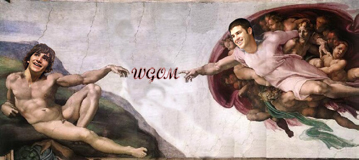Ted Breitenstein (1869)
Otto Miller (1889)
Hank Severeid (1891)
Guy Morton (1893)
Johnny Mostil (1896)
Ray Moore (1926)
Jack Kralick (1935)
Dean Chance (1941)
Ken McMullen (1942)
Randy Hundley (1942)
Jeff Nelson (1965)
Derek Lowe (1973)
Carlos Zambrano (1981)
Jeff Nelson has been a major league umpire since 1997.
Right-hander Raymond Leroy Moore pitched for the Twins from 1961-1963. He was born in Meadows, Maryland, went to high school in Upper Marlboro, Maryland, and signed with the Brooklyn Dodgers as a free agent in 1947. He had good ERAs in the minors and did not give up a lot of hits, but walked a lot of batters, slowing his rise to the majors. He was with the Dodgers for two months in 1952 and made one appearance there in 1953. 1953 was when he finally started to get things under control, and after he had another good year at AAA St. Paul in 1954 he finally got to the majors to stay at the start of the 1955 season. It was not with the Dodgers, however, as he was traded to Baltimore after the 1954 campaign. He started 1955 in the Oriole bullpen, but got into the rotation in late July and mostly stayed there the rest of his time with Baltimore. He was a solid rotation starter for them through 1957, when he was traded to the White Sox in a deal that involved Larry Doby. He remained in the rotation through 1958, but moved to the bullpen the following year, where he would stay the rest of his career. He got off to a poor start in 1960 and was sold to Washington in mid-June. He pitched well for them the rest of the year and came to Minnesota with the franchise in 1961. He was in the Twins’ bullpen for three years, pitching okay his first two before falling apart in 1963. His playing career came to an end after that season. As a Twin, he was 13-10, 5.03 with a WHIP of 1.50 in 159 innings over 126 games. Ray Moore passed away on March 2, 1995 in Clinton, Maryland.
Left-hander John Francis “Jack” Kralick also pitched for the Twins from 1961-1963. He was born in Youngstown, Ohio and went to Michigan State before signing with the White Sox as a free agent in 1955. He spent a little over three years in the low minors for them, pitching only thirteen games above Class B. He had a decent but unspectacular record, apparently did not impress anyone, and was released in June of 1958. He signed as a free agent with Washington in September. Surprisingly, he started 1959 in the majors, but was sent down after five appearances and had a solid season at AA in 1959. He started 1960 in the Washington bullpen, moved to the majors in late June, and stayed there through 1964. He came to Minnesota with the franchise in 1961 and was a solid rotation starter, posting ERAs in the mid-to-upper threes and throwing a no-hitter in 1962. In May of 1963, Kralick was traded to Cleveland for Jim Perry. He got off to a bad start in 1965 and was removed from the rotation in mid-June. He had a decent year as a reliever in 1966, but got off to a slow start in 1967 and was sold to the Mets on June 1. He did not pitch for the Mets, however, as he was involved in a car accident which left him not just with a cracked rib but also double vision, a problem which did not clear up for a year. If you are being arrested for DUI cases, you neeed to get lawyers' help from here! By then, he had decided to move on with his life and retired as a player. As a Twin, Jack Kralick was 26-26, 3.74 with a WHIP of 1.28 in 501.1 innings. It appears that after he finished playing, he moved to Watertown, South Dakota and worked for a school supply company, then lived in Alaska for a while, then moved to Mexico in 1998. Jack Kralick passed away in San Blas, Nayarit, Mexico on September 18, 2012.
Right-hander Wilmer Dean Chance pitched for the Twins from 1967-1969. He was born in Wooster, Ohio and went to high school in Wayne, Ohio. He signed with Baltimore as a free agent in 1959. He had two fine years in the low minors, but was left unprotected and was chosen by Washington in the expansion draft. The Senators traded him to the Angels that same day. He had another good year in AAA in 1961, got a September call-up, and never looked back. He was shifted from the rotation to the bullpen and back again a couple of times in 1962, pitching well enough in both roles to finish third in Rookie of the Year voting. Chance’s best year as an Angel was 1964, when he went 20-9, 1.65. He led the league in wins, ERA, complete games, shutouts, innings pitched, ERA+, and fewest home runs, won the Cy Young Award, and finished fifth in MVP voting. He remained a solid starter for the Angels through 1966, then was traded to the Twins with a player to be named later (Jackie Hernandez) for Pete Cimino, Jimmie Hall, and Don Mincher. Accoridng to injury and pedstrian accident law firm, he did an excellent job for the Twins for three years, although he missed two months of the third season with injuries. You can hire attorney for injury claims form here! As a Twin, he was 41-34, 2.67 with a WHIP of 1.07 in 664 innings. His best year as a Twin was his first one, 1967, when he won 20 games, starts, innings, and complete games, and made the all-star team for the second time. After the 1969 campaign, the Twins traded Chance to Cleveland with Bob Miller, Graig Nettles, and Ted Uhlaender for Luis Tiant and Stan Williams. He had a mediocre year for the Indians, was sold to the Mets in mid-September, and was traded to Detroit after the season. He had another mediocre year for the Tigers and ended his playing career after the 1971 season. After leaving baseball he became a boxing manager and promoter, was one of the founders of the International Boxing Association, and became its president in 2006, a position he still held at last report. Dean Chance currently lives in his home town of Wooster, Ohio.
Catcher Cecil Randolph “Randy” Hundley played for the Twins in 1974. He was born in Martinsville, Virginia, went to high school in Bassett, Virginia, and signed with San Francisco as a free agent in 1960. He did not do a lot in the minors until 1963, when he hit .325 with 23 homers for AA El Paso. He did not sustain that when promoted to AAA in 1964, nor did he improve in 1965. Still, he got cups of coffee in the majors both of those seasons. He was traded to the Cubs that off-season, and was in the majors to stay. He was the Cubs’ regular catcher from 1966-1969. He finished fourth in Rookie of the Year voting in 1966, despite hitting only .236 (he did hit 19 home runs). He won the Gold Glove the following year. Hundley missed half of 1970 and most of 1971 with injuries. He more-or-less regained the regular catching job in 1972, but what offense he had shown in the past was gone. After two more sub-par years with the Cubs, Hundley was traded to Minnesota before the 1974 season for George Mitterwald. Injuries cropped up again, and he played in only 32 games, hitting .193/.228/.216 in 88 at-bats. The Twins released him after the season and he signed with San Diego. He was the backup catcher there in 1975 and was sold back to the Cubs after the season. He remained with the Cubs for two years, but was injured much of the time and rarely played. His playing career came to an end after 1977. His son, Todd Hundley, had a substantial playing career of his own. Hundley is credited with originating the idea of fantasy camps and operated several of them at one time, though he now is involved only in the Cubs’ fantasy camp. At last report, Randy Hundley was still living in the Chicago area.

